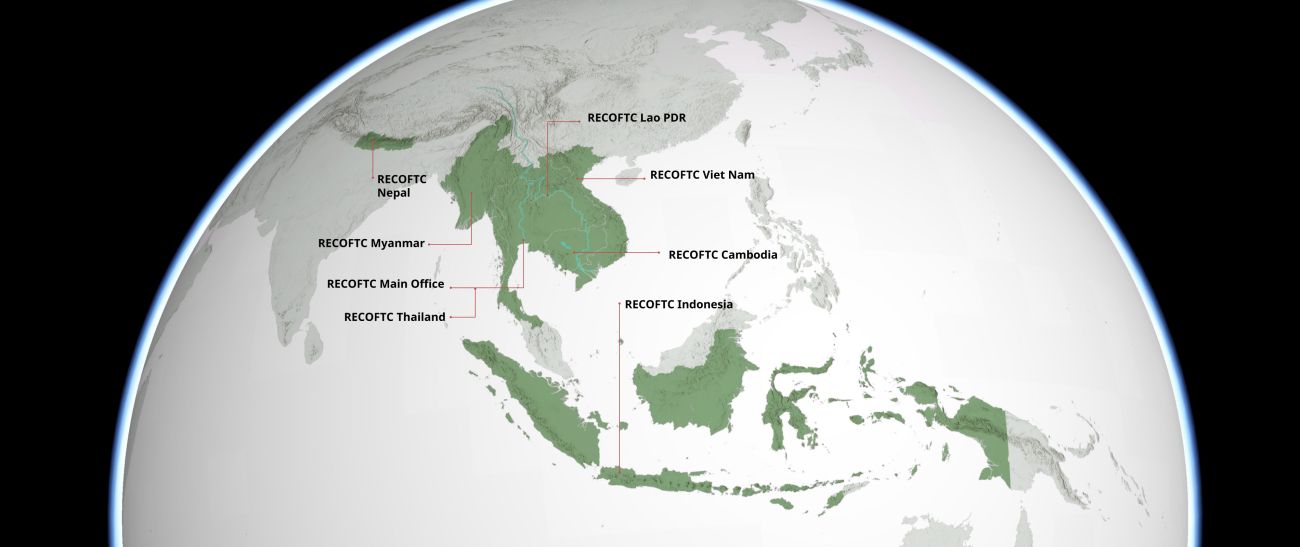
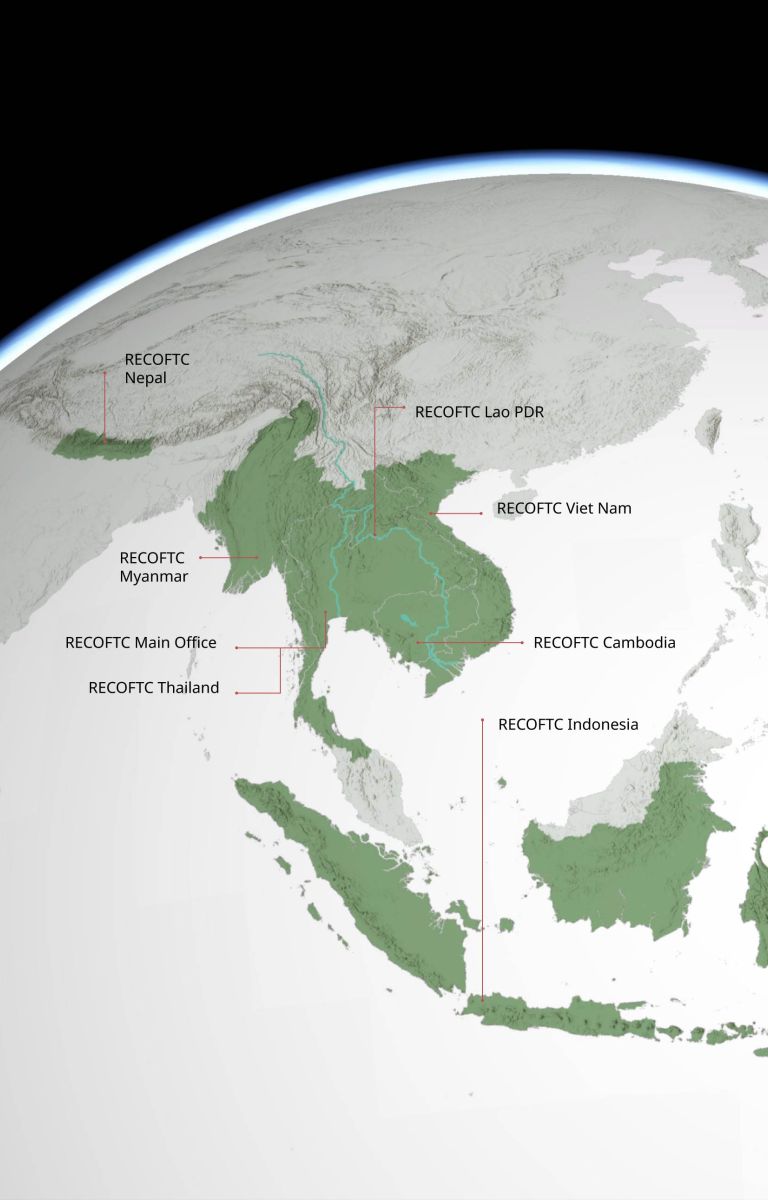
RECOFTC’s 127 team members based in seven focal countries in the Asia–Pacific region worked with 238 organizations and 15,802 rural community members, government officials and private sector business people in 2021–2022. Through 27 projects, they contributed to the growth of community forest areas. This is a foundation for achieving the Paris Agreement on climate change and many of the Global Goals, also known as the Sustainable Development Goals, or SDGs.
RECOFTC’s entry point to sustainable development and climate change solutions is community forestry. Our overarching aim is to help achieve the Global Goals. Our innovations, knowledge and initiatives enable countries to foster good forest governance and to mitigate and adapt to climate change.
The four goals of RECOFTC’s Strategic Plan 2018–2023 promote sustainable development and climate change solutions across the Asia-Pacific region.
- Landscape collaboration in a changing climate
- Governance, institutions and conflict transformation
- Private sector engagement and enterprising communities
- Social inclusion, gender equity and public action
To achieve these goals, we put people at the centre of development. We work to ensure that communities that depend on forests have secure rights and can participate equitably in decisions that affect their lives.
RECOFTC’s work to achieve its four Strategic Plan goals links with all 17 Global Goals. They are all ultimately about poverty reduction and increased well-being of humans and the planet. RECOFTC’s work in fiscal year 2021–2022 most closely aligned with seven of the Global Goals.

For example, RECOFTC helped 444 communities, representing 68,195 households, gain formal approval of their stewardship over their community forest. RECOFTC directly supported a total of 481,410 hectares of land under community forestry.
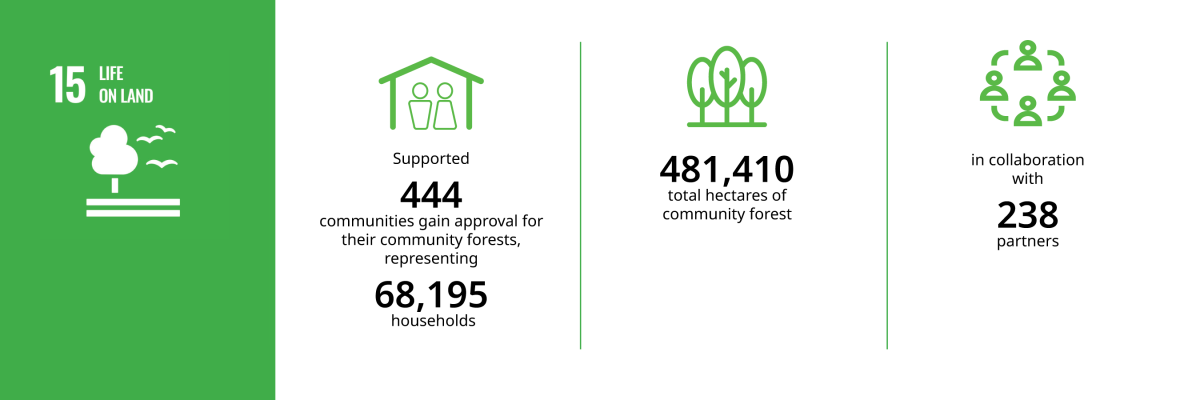
RECOFTC supported community forest users’ groups in the Asia–Pacific region to build climate change responses into their community forestry management plans. RECOFTC worked directly with 444 approved community forests in 2021–2022. In those community forests, 430 community forest users’ groups included climate change mitigation and adaptation interventions in their community forestry management plans. These 430 users’ groups continue to manage a total of 293,302 hectares of forest with strategies that can respond to climate change threats.
To enhance public knowledge and raise awareness, RECOFTC published 354 communication and knowledge products about community forestry and climate change on its website and in other public forums. These reached more than 5.1 million people.
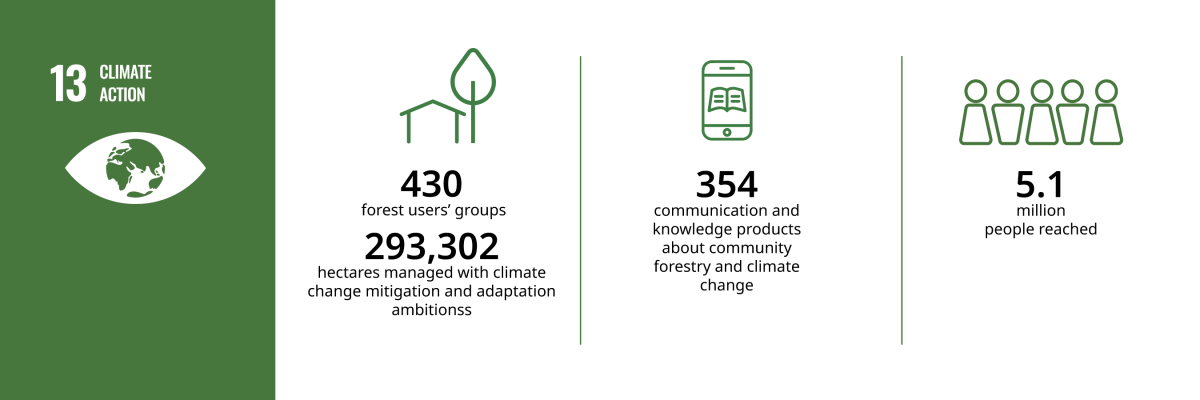
In 2021–2022, about 27 percent of the community forestry management committee members in RECOFTC’s program areas were women. Those community forestry management committees also included people with disabilities and representatives of Indigenous Peoples.

Around 17,682 members of community forest users’ groups participated in policy dialogue and other events organized by RECOFTC and partners. These events gave them the opportunity to voice their concerns related to sustainable natural resource management. They worked to reduce discrimination, marginalization and the exclusion of people living in fragile contexts in RECOFTC’s seven focal countries.
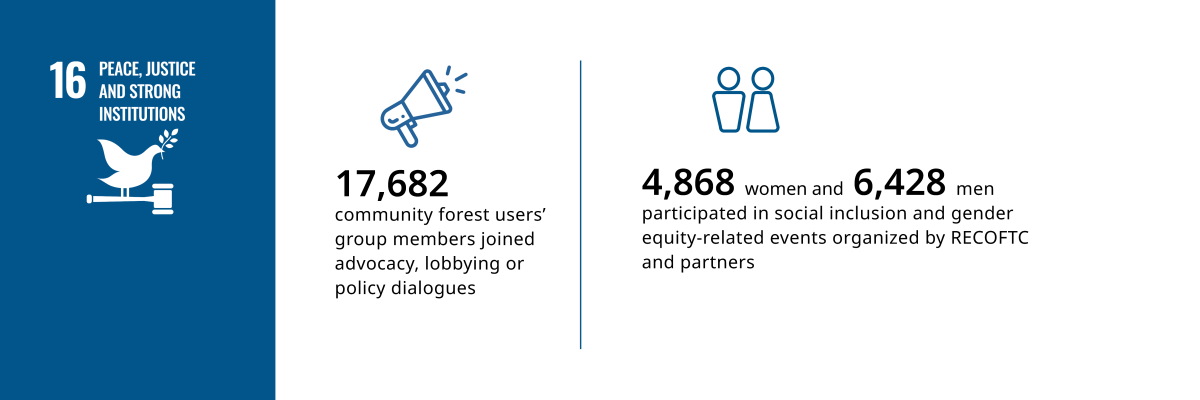
RECOFTC supported 66 individual community enterprises that involved 40 women and 50 men. We also supported 52 group enterprises with a total of 1,469 members, 668 of them women. Of the 30 forest- or landscape-based community business partnership agreements developed by local entrepreneurs and investors, 19 were formal and 11 were informal. They agreements covered partnerships for enterprises such as teak wood production and processing, rattan and bamboo harvesting, plant nurseries, herbal products, weaving, handicrafts and community tourism.
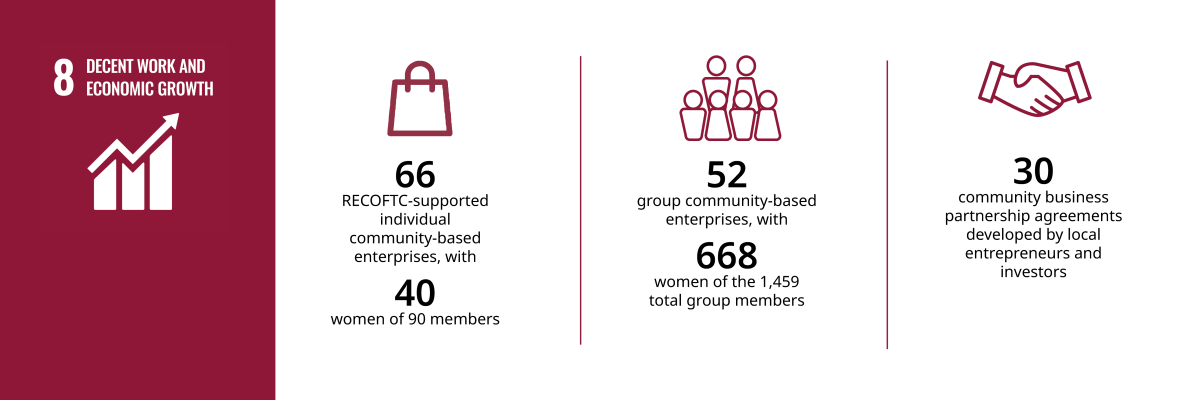
In 2021–2022, RECOFTC trained 2,595 women and men on community forestry and sustainable development topics related to tenure security, climate change, social inclusion and more. And 2,362 women and men accessed one of two e-learning course RECOFTC implemented in the fiscal year. In total, 11 percent of enrolees completed the course. This is considered above the industry average of 7–10 percent for completion of massive open online courses according to a 2021 study by Fu et al.
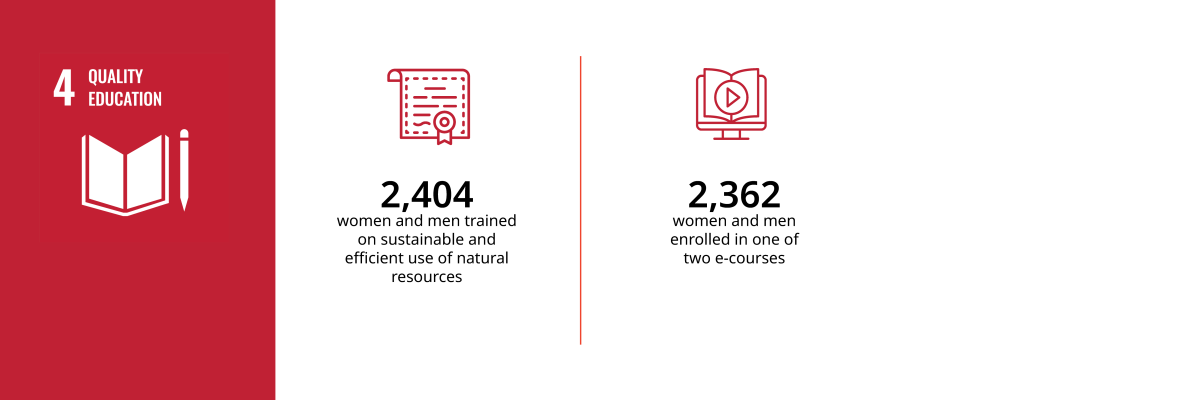
Community forestry is a safeguard for the sustainable use of natural resources. In 2021–2022, RECOFTC trained 2,595 women and men on the sustainable and efficient use of natural resources. Of them, 441 were also trained on sustainable investment and community-based enterprise development.

Read the detailed report on the links between RECOFTC’s work in 2021–2022 and the Global Goals.
